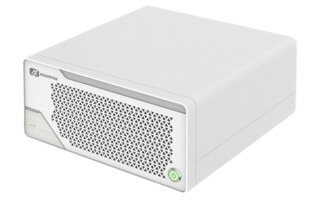Three cloud computing types are available. Which is right for you?
September 25, 2017

There are three main types of cloud computing: public, private, and hybrid. These different variations are characterized by who owns the servers and where the servers are located.
Cloud computing is becoming a standard practice for companies of all sizes in various industries. There are three main types of cloud computing: public, private, and hybrid. These different variations are characterized by who owns the servers (where the cloud is hosted) and where the servers are located. Public cloud servers are owned by a cloud services company that provides cloud services to a wide range of customers.
Private servers belong to the end-user and are integrated into their IT infrastructure to provide cloud services to the company’s employees. The middle ground between public and private is a hbrid cloud arrangement, in which some cloud services are purchased from public providers and other cloud services are provided by the private cloud infrastructure.
To understand which type of cloud computing is right for you, you must carefully evaluate your cloud services needs, current IT infrastructure, and IT staff capabilities. Consider:
- Your budget for the desired cloud services
- Your physical space available
- The up-front capital costs and expenses
- The total lifecycle costs
- Your IT staffing capabilities and related expense
If you have little space available and few people to spare, for example, a private implementation probably isn’t a good solution. An important concern is the importance of data security to your business. Security assessments must be conducted for physical and virtual protection. Finally, consider how scalable you want your cloud, and how redundancy will be built into your cloud implementation.
Keeping the above concerns in mind, let’s review the three types of cloud systems. Public types are typically low cost, low-maintenance, and highly scalable, but can pose a risk in terms of data security, reliability, and long-term expense. Private systems give you complete control over every aspect, but can be a significant up-front investment with expensive cost of ownership. Lastly, Hybrid configurations may offer better data security than public clouds and usually have low prices for Internet connectivity, but can be difficult to physically access and could have higher infrastructure maintenance expenses.
Once you’ve decided on your appropriate cloud configuration, there are migration steps to address, depending on which cloud type you chose, such as consolidating your existing hardware and infrastructure, choosing the appropriate cloud services software, and load balancing your cloud services with other software applications.




